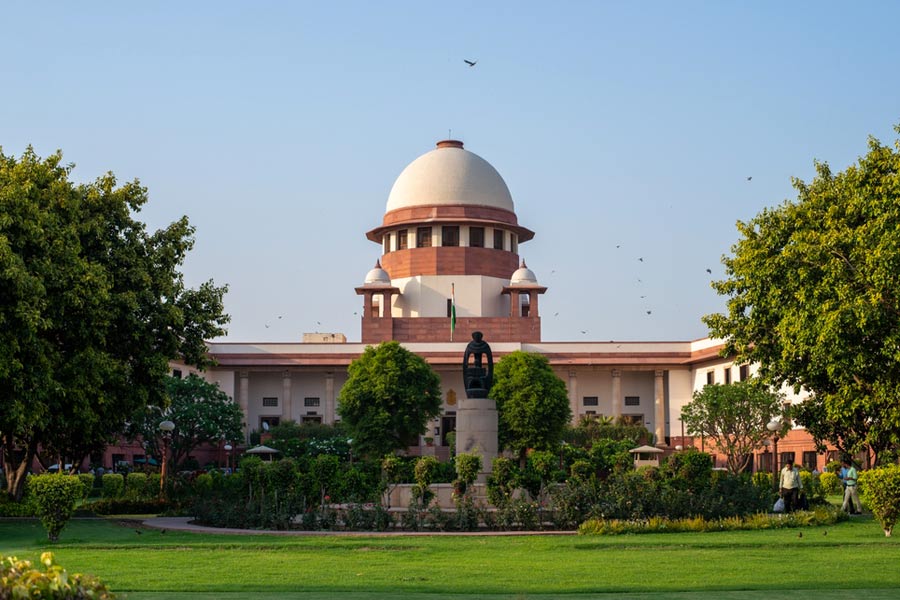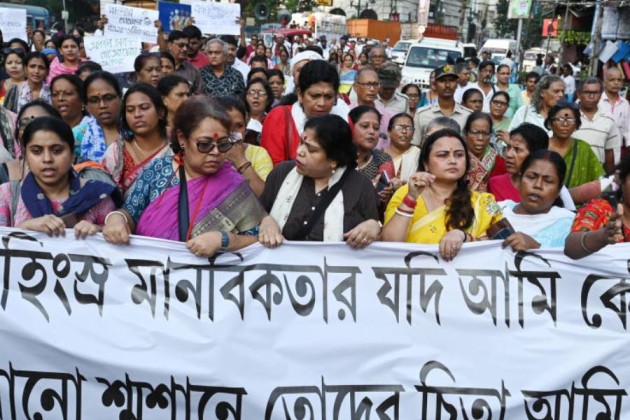The family of the Kamduni rape-and-murder victim has approached the Supreme Court saying the release of some of the convicts poses a “major threat to the family of the victim” and asking they be taken back into custody.
In an application moved through advocate Siddesh Shirish Kotwal, the family has sought to be impleaded as co-appellants in the appeal moved by the Bengal government against the acquittal of a convict and the reduction of the sentences of three others.
Calcutta High Court had on October 6 commuted the death sentences of two convicts to life terms and acquitted a third death-row convict. It had reduced the life sentences of three other convicts to seven years, paving the way for their release as they had already spent about 10 years in jail.
“That the accused/ convicts who have been released... must be taken into custody as they are a flight risk and pose a major threat to the family of the victim,” the victim’s brother has said in the application to the Supreme Court.
“It is also imperative to submit that considering the nature of the offence, the accused are a risk to the society.”
On October 9, the apex court bench of Justices Bhushan Gavai, P.S. Narasimha and Prashant Mishra had issued notices on the state government’s appeal.
The bench had agreed to examine the state’s plea, moved through standing counsel Astha Sharma, which says the high court had not only “given a complete go-by to the nature of the offence but… unreasonably attach(ed) undue importance to possibility of reformation and rehabilitation of the accused”.
The victim, a college student, was 19 when she was dragged from a country road, gang-raped and murdered outside Kamduni — a village near Calcutta — on a June afternoon in 2013 while returning home from her college.
Her brother’s application says the high court had “erred” in commuting the life terms of Saiful Ali and Ansar Ali, acquitting Amin Ali of all charges, and reducing the life sentences of “Bhutto, Emanul and Bhola” after exonerating them of charges under Section 376D (gang rape).
The accused “constitute members of the same group and indulged in the offence in furtherance of the common intention of committing gang rape, murder and effacing of evidence”, it says.
It argues that the high court failed to consider several factors, such as:
“Firstly, there was a prior concert between the accused to murder and rape the victim which is to be proven by the chain of events; secondly, the nature of the injuries inflicted upon the accused was indeed ‘extensive and brutal’ which is proven by the post-mortem report and other medical evidence; thirdly, there is no iota of scope for the accused to reform and rehabilitate, the act of murdering and putting the dead body on a raised platform shows culpable depravity of mind....
“Offence such as in the present case is not to be seen as an offence against an individual but against the entire society. That even as per Section 376D of the IPC where a woman is raped by one or more persons constituting a group or acting in furtherance of a common intention, each of those persons shall be deemed to have committed the offence of rape,” the application adds, citing the apex court’s judgment in State of Rajasthan vs Roshan Khan (2014).
The application argues that the high court had largely overlooked the gravity of the offence and, instead, excessively highlighted the potential for reform and rehabilitation of the accused.












